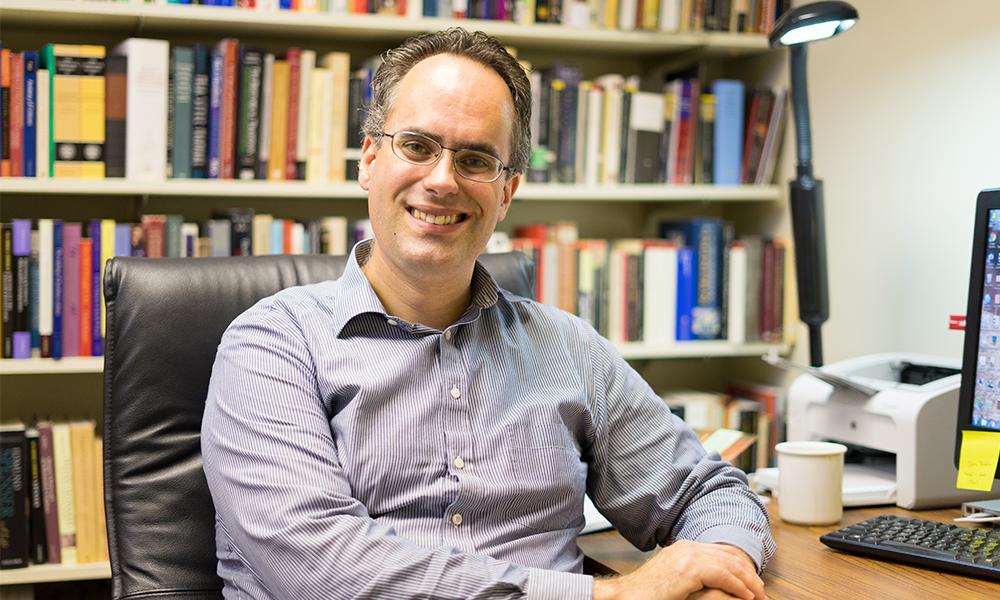English professor secures NEH grant to teach on printing and the book during the Reformation
News
SUMMARY: English professor Mark Rankin has received a $159,005 grant from the National Endowment for the Humanities (NEH) to teach a seminar on the ways in which book printing practices shifted in response to the Reformation's turbulent era of change.
Mark Rankin, professor of English, has received a $159,005 grant from the National Endowment for the Humanities (NEH) to direct a 2021 Summer Seminar for higher education faculty. NEH Summer Seminars provide higher education faculty with the opportunity to deepen their engagement with the humanities by studying a specific topic under the guidance of established scholars.
Rankin will direct a seminar on "Printing and the Book During the Reformation: 1450–1650” in which participants will study the ways in which books were re-formed, or adapted, in response to this turbulent era of religious, intellectual, literary and cultural change. Discussing the contemporary significance of this topic, Rankin notes: “The study of books as material objects, and of the relationship between their physical form and their contents, is extremely timely given the recent shift to digital forms of communication.”
As currently planned, the seminar will convene at the Rare Book and Manuscript Library at The Ohio State University in Columbus, Ohio. This repository has one of the finest rare book collections related to this topic in the United States.
Rankin also received a separate NEH grant of $14,274 as a CARES-Act supplement to his NEH scholarly editions grant, "The Independent Works of William Tyndale." According to Rankin, this funding “will assist in producing a badly needed new edition of Tyndale's Practise of Prelates, one of the most important books of the English Reformation.”
Since arriving at JMU in 2007, Rankin has received $1,052,191 in external research funding, an extraordinary amount for any English professor. Speaking about what makes JMU special, Rankin observes: our “faculty produce world-class research, and then teach our students from within that framework. It is that research-teaching combination which really constitutes the JMU experience for our students.”
